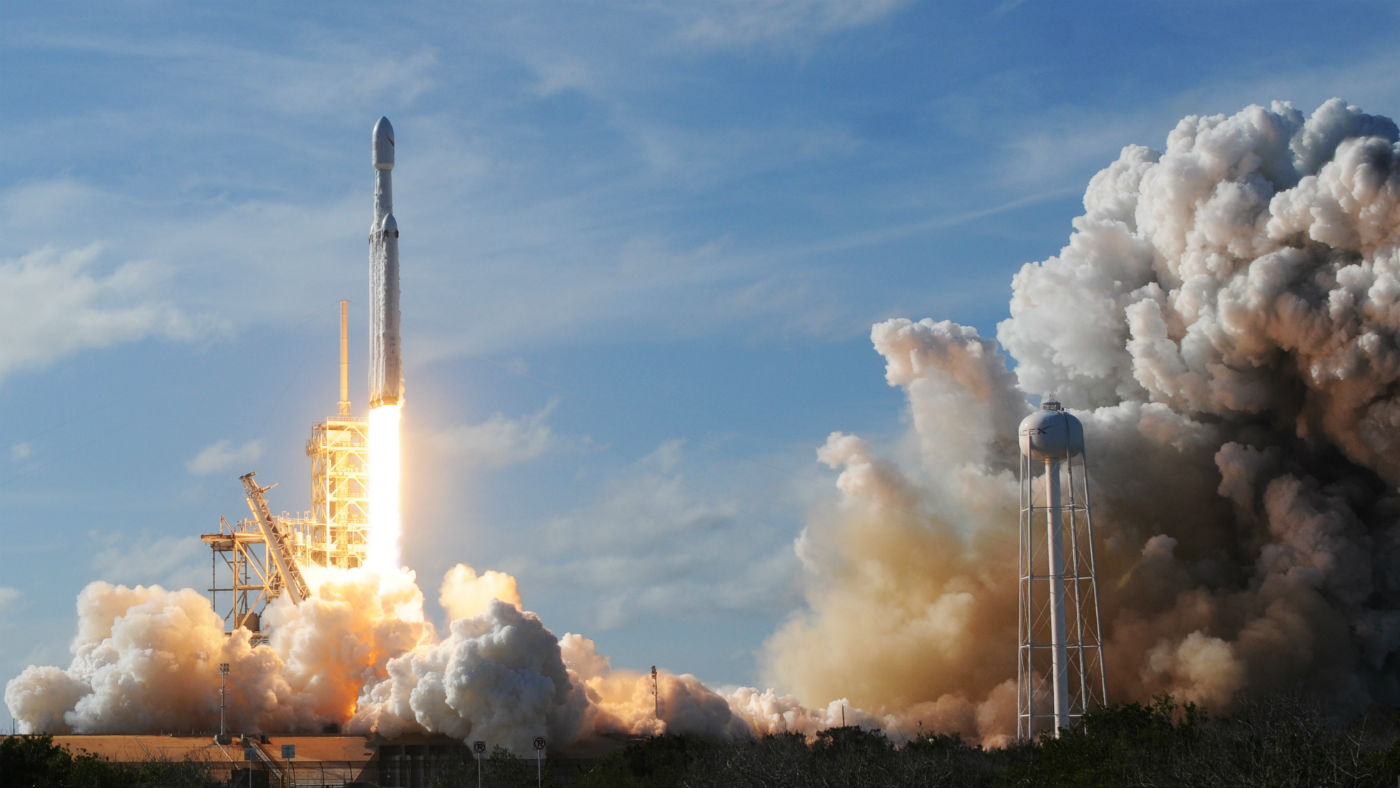Africa’s space race intensifies
Moon landings ‘still a long way off’ but Nigeria and South Africa leading the way in space technology

A free daily email with the biggest news stories of the day – and the best features from TheWeek.com
You are now subscribed
Your newsletter sign-up was successful
Kenya has become the latest African country to join the continent’s burgeoning space race, after launching its first home-designed satellite from the International Space Station.
The country joins Nigeria, South Africa, Ethiopia, Egypt and Algeria on a growing list of African countries which have renewed interest in their space programmes over the past decade.
Leading the way are Nigeria and South Africa. The latter will host the world’s biggest radio telescope, the Square Kilometre Array (SKA), which will cost $790m and enable astronomers to look further into space.
The Week
Escape your echo chamber. Get the facts behind the news, plus analysis from multiple perspectives.

Sign up for The Week's Free Newsletters
From our morning news briefing to a weekly Good News Newsletter, get the best of The Week delivered directly to your inbox.
From our morning news briefing to a weekly Good News Newsletter, get the best of The Week delivered directly to your inbox.
Nigeria, meanwhile, plans to be the first African nation to send an astronaut to space, aiming for a space visit by 2030.
CNN says Nigeria is, in fact, aiming to create a “world-class space industry” and has launched five satellites since 2003 which have helped improve agricultural practices, collect climate data and track-down hostages taken by Boko Haram.
Space programmes in Africa have a long history dating back to the 1960s when a series of dictators ploughed vast resources into reaching the stars.
Often criticised as a waste of money, there is a belief that space programmes can form an important part of economic development by driving technological development.
A free daily email with the biggest news stories of the day – and the best features from TheWeek.com
Launching a satellite “has the potential to improve agriculture, guard against deforestation, improve disaster planning, and provide internet to rural communities”, says Quartz.
Yet even with the likes of Ethiopia, Kenya, Ghana and Egypt all developing their own satellites, the continent still lags far behind the global space race, in which China and India have made huge strides in recent years.
One way African countries could hope to make up ground on their international rivals would be through collaboration, says CNN.
Carla Sharpe, Business Manager at SKA in South Africa, says an African Space Agency, first mooted by the African Union in 2010, is the way forward.
“The African Space Agency will be beneficial in the long term but is a little premature,” she said. “I think countries need to develop and grow their own capabilities first.”
In the longer term, she said, “collaboration will be the only the answer for us to develop forward”.
-
 5 calamitous cartoons about the Washington Post layoffs
5 calamitous cartoons about the Washington Post layoffsCartoons Artists take on a new chapter in journalism, democracy in darkness, and more
-
 Political cartoons for February 14
Political cartoons for February 14Cartoons Saturday's political cartoons include a Valentine's grift, Hillary on the hook, and more
-
 Tourangelle-style pork with prunes recipe
Tourangelle-style pork with prunes recipeThe Week Recommends This traditional, rustic dish is a French classic
-
 Epstein files topple law CEO, roil UK government
Epstein files topple law CEO, roil UK governmentSpeed Read Peter Mandelson, Britain’s former ambassador to the US, is caught up in the scandal
-
 Iran and US prepare to meet after skirmishes
Iran and US prepare to meet after skirmishesSpeed Read The incident comes amid heightened tensions in the Middle East
-
 Israel retrieves final hostage’s body from Gaza
Israel retrieves final hostage’s body from GazaSpeed Read The 24-year-old police officer was killed during the initial Hamas attack
-
 China’s Xi targets top general in growing purge
China’s Xi targets top general in growing purgeSpeed Read Zhang Youxia is being investigated over ‘grave violations’ of the law
-
 Panama and Canada are negotiating over a crucial copper mine
Panama and Canada are negotiating over a crucial copper mineIn the Spotlight Panama is set to make a final decision on the mine this summer
-
 Why Greenland’s natural resources are nearly impossible to mine
Why Greenland’s natural resources are nearly impossible to mineThe Explainer The country’s natural landscape makes the task extremely difficult
-
 Iran cuts internet as protests escalate
Iran cuts internet as protests escalateSpeed Reada Government buildings across the country have been set on fire
-
 US nabs ‘shadow’ tanker claimed by Russia
US nabs ‘shadow’ tanker claimed by RussiaSpeed Read The ship was one of two vessels seized by the US military